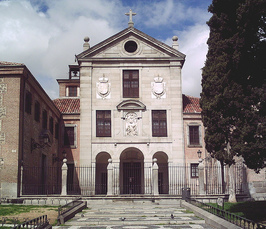Juana de Godínez
Colloquium Methods for Legal History
- Date: Oct 6, 2020
- Time: 04:30 PM - 06:00 PM (Local Time Germany)
- Speaker: Michelle McKinley (University of Oregon)
- Location: video conference
- Room: For further information please contact ruether@rg.mpg.de

This paper assesses the legal struggle of Juana Godínez to enforce the last will and testament of her owner that she remain within the cloisters of La Encarnación (a cloister for wealthy Limeña doncellas in the seventeenth century) as a free person. According to the terms of Juana’s owner’s will, if she were to leave the convent, she would have to pay 400 pesos for her freedom. At the heart of the dispute was whether her owner provided the 400 pesos for her purchase as a donation to the cloister, or whether she intended Juana to leave that sum for Juana to purchase her freedom. But, did her owner’s testament in fact grant Juana autonomy to choose how she would live her life after her death, or did the testament give her an option to remain within the cloister (the only home she had ever known) as a freedwoman? What can the conditions of the will reveal about the terms of freedom, autonomy, and dependence of testamentary manumission? Ultimately, Juana chose to live within the cloister as a freed woman, and she fought her owner’s successor to accede to that choice. Yet we must imagine the tensions that arose during Juana’s protracted struggles through the court to claim her freedom, while living within the cloister with an abbess who clearly sought to keep her as enslaved community property.
The fact that Juana “chose” to remain within the cloister while litigating her case prompts us to think of what freedom meant to enslaved women who belonged to religious communities. I use Juana’s case to think through issues of freedom and autonomy within the confines of religious enclosure and the hierarchies of female religious communities. As many scholars have noted, enslaved women had a thorny relationship with religious enclosure. Juana’s case—and her alleged choices afford us an opportunity to think through freedom in the early modern slaveholding world.